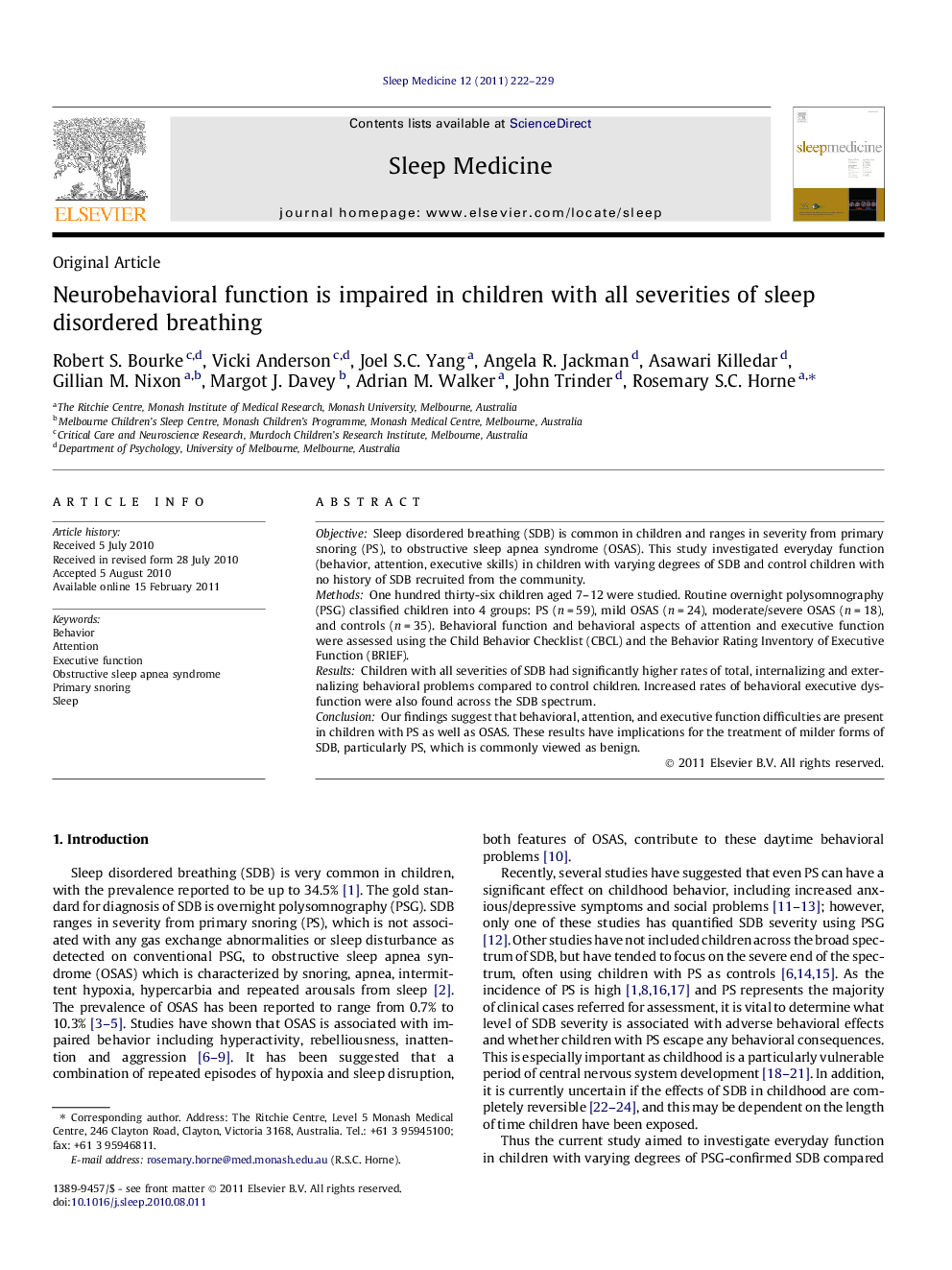| Article ID | Journal | Published Year | Pages | File Type |
|---|---|---|---|---|
| 3176371 | Sleep Medicine | 2011 | 8 Pages |
ObjectiveSleep disordered breathing (SDB) is common in children and ranges in severity from primary snoring (PS), to obstructive sleep apnea syndrome (OSAS). This study investigated everyday function (behavior, attention, executive skills) in children with varying degrees of SDB and control children with no history of SDB recruited from the community.MethodsOne hundred thirty-six children aged 7–12 were studied. Routine overnight polysomnography (PSG) classified children into 4 groups: PS (n = 59), mild OSAS (n = 24), moderate/severe OSAS (n = 18), and controls (n = 35). Behavioral function and behavioral aspects of attention and executive function were assessed using the Child Behavior Checklist (CBCL) and the Behavior Rating Inventory of Executive Function (BRIEF).ResultsChildren with all severities of SDB had significantly higher rates of total, internalizing and externalizing behavioral problems compared to control children. Increased rates of behavioral executive dysfunction were also found across the SDB spectrum.ConclusionOur findings suggest that behavioral, attention, and executive function difficulties are present in children with PS as well as OSAS. These results have implications for the treatment of milder forms of SDB, particularly PS, which is commonly viewed as benign.
